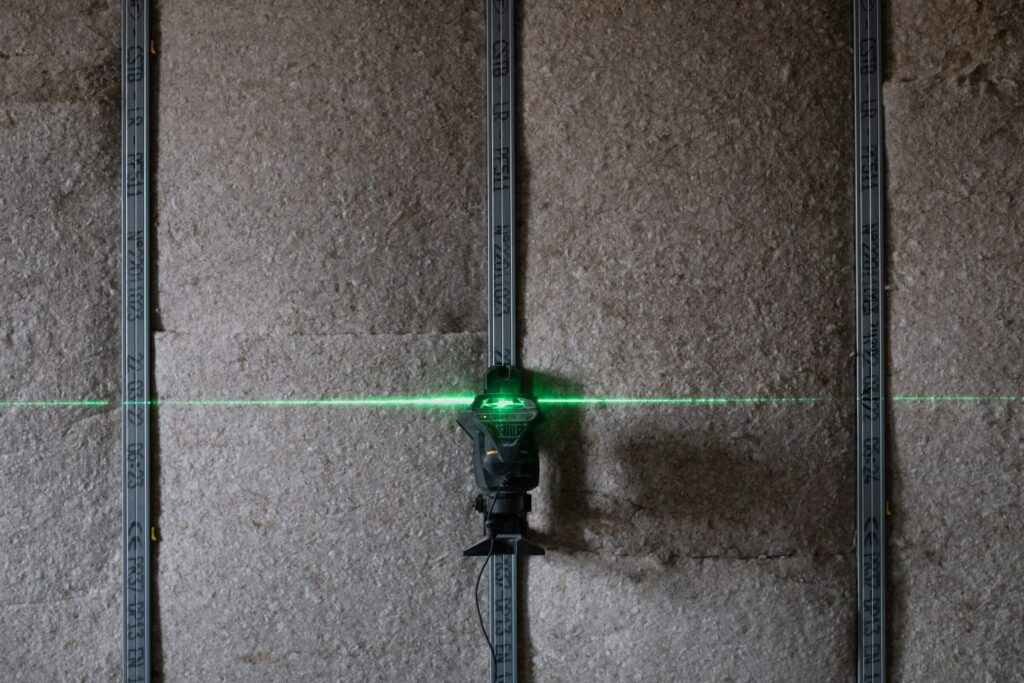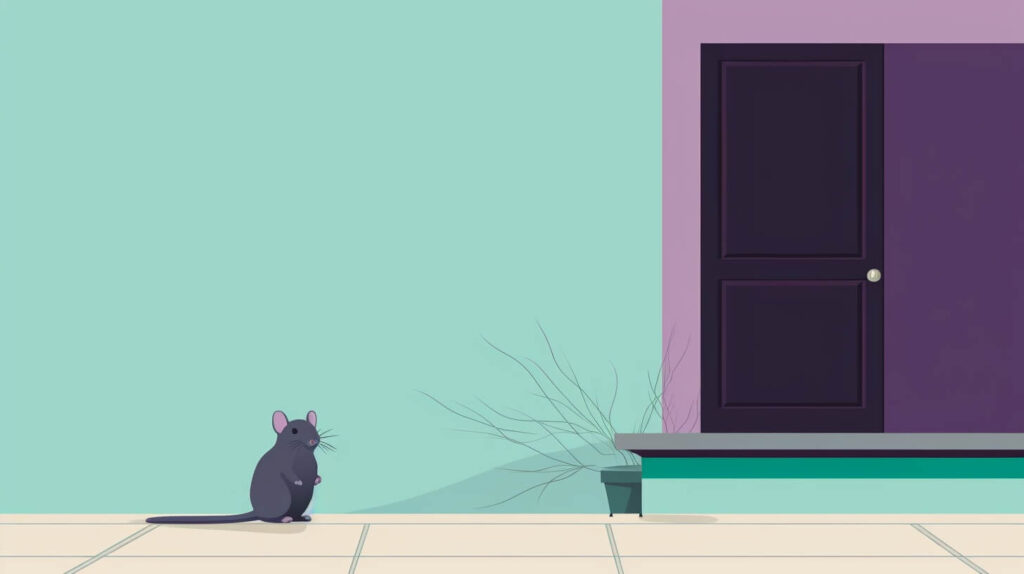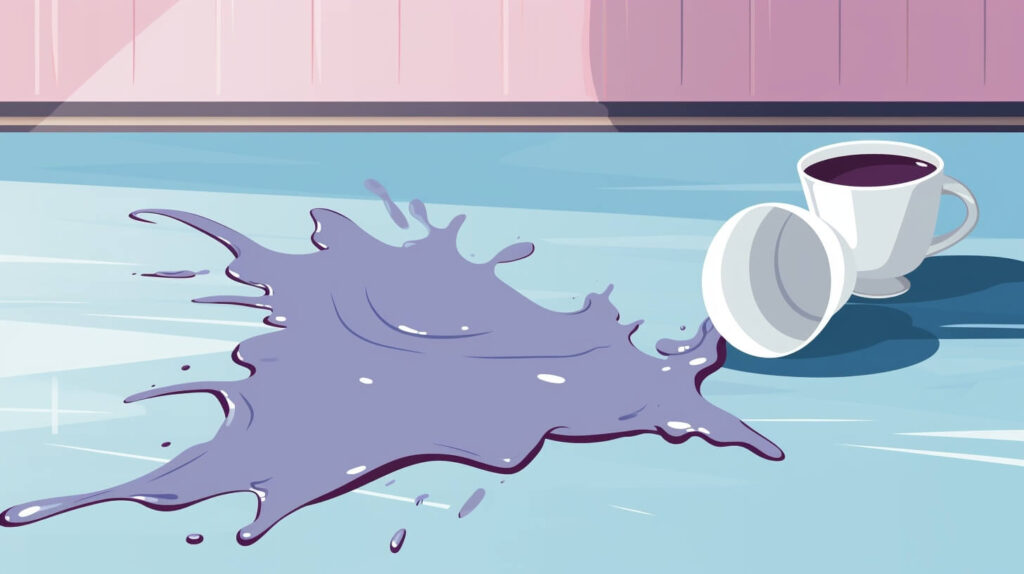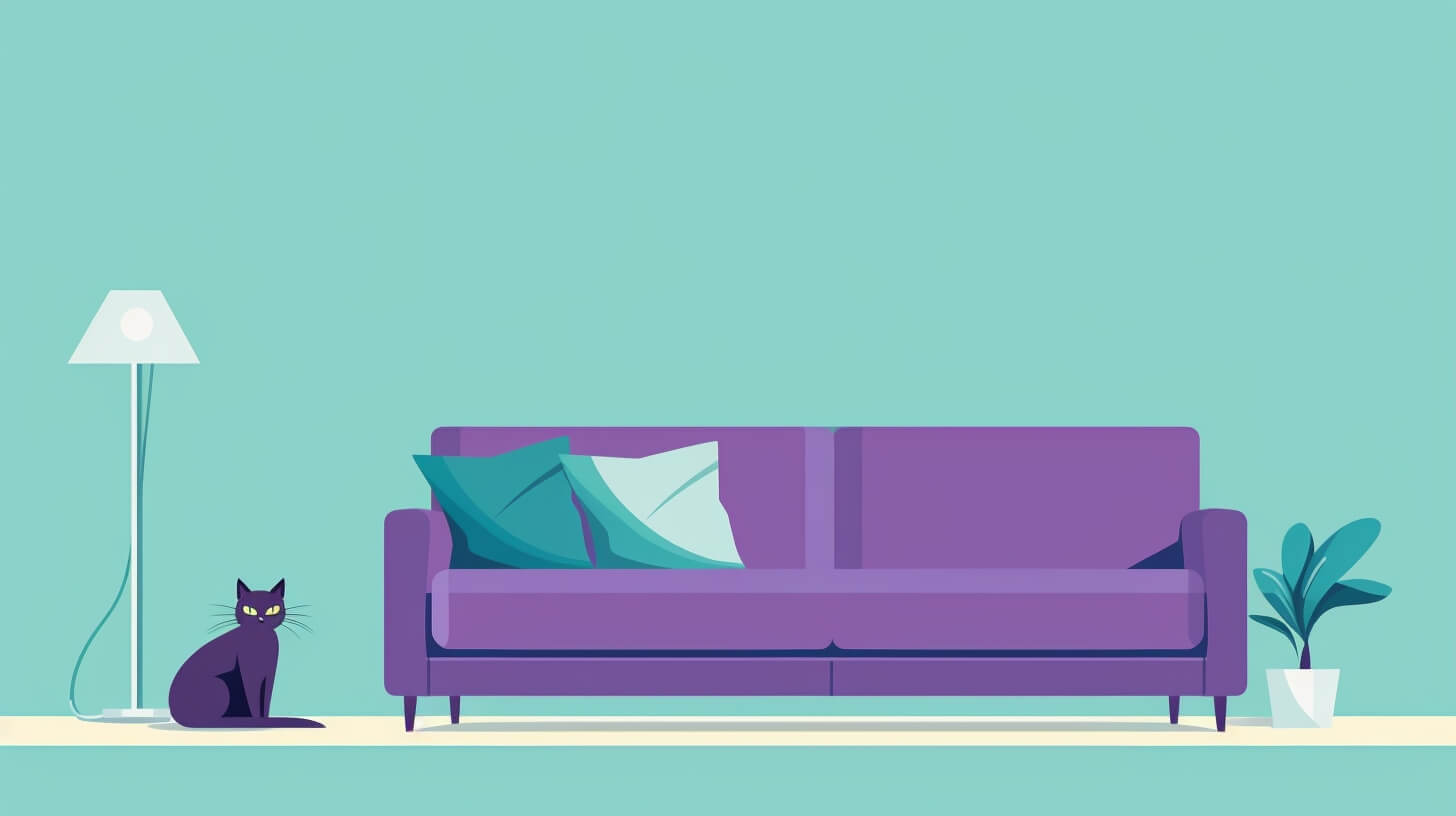
We are reader-supported. When you buy through links on our site, we may earn an affiliate commission.
Cats are wonderful domestic companions because of their love and affection. However, they can be a nuisance if they get too excited and damage your interior. For example, your cat may enjoy scratching furniture and tearing up the exterior. Why do they like it so much, and how can you stop this behavior? Here’s what you need to know.
Why Your Cat Likes Scratching Furniture
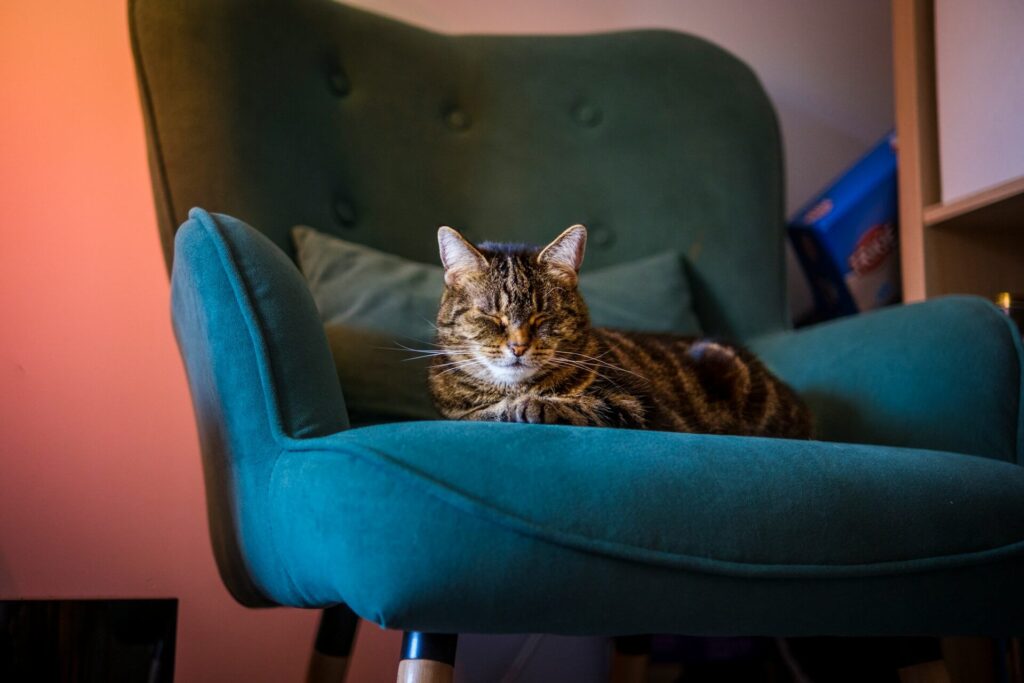
Scratching is a perfectly normal action for your cats, as it’s part of their instincts. They’ll go to town and groom their nails if they can get their claws on it. Experts say it relieves stress and anxiety, stretches muscles and establishes territory. It’s fun, relaxing and beneficial for their bodies! Unfortunately, your couch could be the vessel for their recreational activities.
What’s the science behind it? Cats have scent glands in their pheromones, which are released during scratching sessions. You won’t be able to smell it, but it leaves a scent and increases their comfort. Marking territory reminds felines that they’re in a safe and familiar environment, and other pets can identify these aromas.
Why Cats Damaging Furniture Is Dangerous
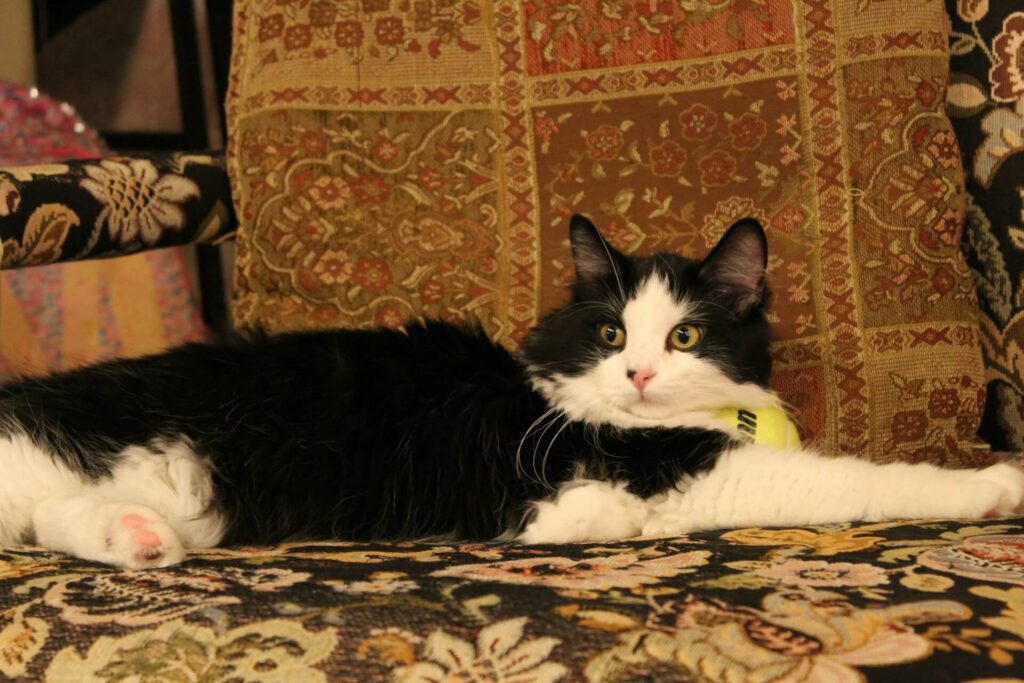
Homeowners don’t sit around wanting their cats to scratch on the couch or loveseat. First, consider the feline’s health, especially if they consistently claw on the furniture. While it benefits their anxiety, scratching can wear down the furnishings and lead to a ripped interior. The last thing you want is your pet eating cushion filler and getting sick.
Other issues could arise when considering your home, especially its value. Damaged furniture doesn’t look good when potential buyers arrive, as it shows you might not adequately care for the living room and other areas. Experts say interior design only minimally affects property value, but a worn-out couch could make the difference when trying to sell.
How to Stop Your Cat From Scratching Furniture
Watching your pets tear up the couch isn’t exactly ideal, but there are ways to stop them. Use these six strategies to prevent your cat from scratching furniture.
1. Strategically Placed Scratching Posts
Scratching posts are your best friends when training cats of any age. These feline-friendly additions are made for sharp claws and happy campers because they remind your pets of the outside world. Instead of scratching furniture, your cat can simulate filing their nails on a tree and leaving behind their scent.
Getting a scratching post is half the battle — now, you must put them in the correct places. Set them near furniture they like to sit on because they’ll see it more often. Once they get used to the placement, they’ll switch to the post instead. These additions are small enough for apartments, which are favorable to cats due to their low maintenance needs.
2. Teaching Cats How to Use Them
Cats do most things on their terms. In fact, they might not use the scratching post when you first place them in the living room or bedroom. Teaching felines how to do things is typically more difficult because they’re more independent and stubborn than dogs. However, there are ways to get them to use the scratching posts.
For example, you could gently grab their paws and rub them against the scratching post. Their claws might not be out when you do this action, but your cat should eventually catch on. Other feline owners have successfully rewarded their cats with treats whenever they start using the right areas. Positive reinforcement is generally a good idea in this learning experience!
3. Attractive Scents on the Posts
If you can’t bring the scratching post to your cat, try bringing your cat to the pad or tower. Attractive scents could be the secret ingredient in luring your feline because they tap in to instincts. The best addition might be catnip because it triggers euphoric responses and mimics pheromones. Plus, it effectively repels mosquitoes, which is terrific in the summertime.
You can use various remedies to attract your cats, but they might not work as well as your smell. Your cat loves and feels safe around you, so try rubbing your scent on the scratching post. It could come from your hands, clothes or anything else with your human aroma.
4. Safe Smells They Don’t Like
If you don’t have a post, another option to stop your cat from scratching furniture is to spray scents they don’t enjoy. If they find an unattractive smell, they’ll likely stay away and find alternative scratching options. For example, people caring for Christmas trees might spray rosemary plants or apple cider vinegar to keep the felines away.
Some scents deter cats but can be toxic and even deadly if your pet gets a whiff. For instance, experts say essential oils are dangerous for felines if they touch, inhale or ingest them. From peppermint to eucalyptus, these fragrances are a no-go. They could exhibit symptoms like difficulty breathing, tremors or vomiting if they get close.
5. Comfortable Couch Protection
Imagine you just got an English roll arm sofa because it fits formal and casual spaces in your home. However, you don’t want to risk a cat scratching the furniture, so take extra precautions like couch covers. Find products that keep the seat comfortable while protecting the piece from becoming dirty.
Couch covers could become uncomfortable if you don’t like the materials underneath. Alternatively, you might just like the original fabric too much to get rid of it. Regardless, another option on the table is getting a scratch protector with adhesives to stick on the couch. This material attracts cats because it lets them scratch without tearing up your furniture.
6. Toys, Toys and More Toys

Another way to stop your cat from scratching furniture is to redirect their attention to something else. Their favorite toys are a terrific option because they immediately distract them and get them away from the couch. Felines don’t learn discipline like dogs do, and negative interactions can quickly sour your relationship. Instead, turn their attention to engaging toys and activities.
Cat toy options vary significantly, so cater to your pet’s preferences. A laser pointer is a solid distraction because it trains their hunting instincts and reflexes. Does your cat enjoy feeling like they’re catching squirrels or birds? Get a kicker toy and watch them have a blast! If your pet doesn’t necessarily like toys, try tempting them with catnip.
Safely Stopping Your Cat From Scratching Furniture
Cats are interesting house pets and can be incredible companions. Regardless of personality, your feline may scratch your furniture and make it unseemly. Damaged couches and mattresses could reveal batting, which isn’t good for your pets to ingest. Fortunately, there are ways to keep them away from your belongings while helping them live happy lives.
